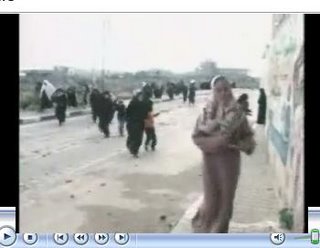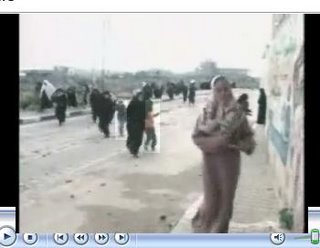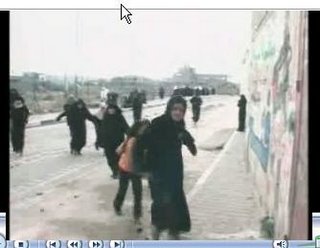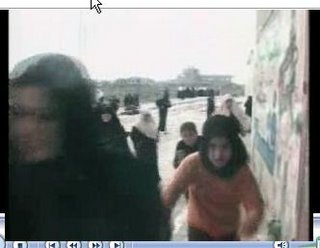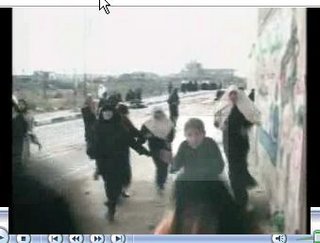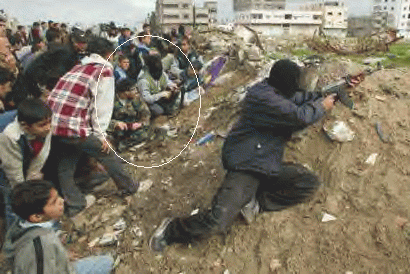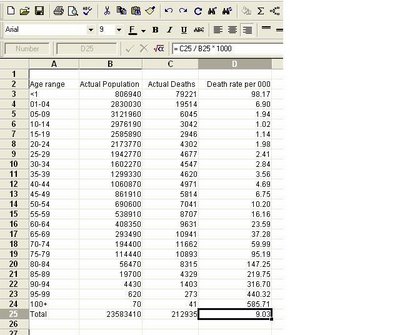On Wahhabism and British spies ...
This is a revised version of a comment first published on the Guardian's Comment is Free website, in this thread. It relates to the purported autobiography, 'Memoirs Of Mr. Hempher, The British Spy To The Middle East'. Distributed by the Turkish publisher Hizmet books, this text claims to show how a British agent sponsored Mohammed ibn Wahhab, the founder of the puritanical Wahhabi strain of Sunni Islam (whose present-day adherents include Osama bin Laden and the Saudi royal family), as part of an elaborate ploy to subvert and destroy Islam, with the ultimate aim of conquering the Middle East. It's said that the book text is receiving wide circulation in present-day Iraq. Prof. Daniel Pipes dismisses it a a hoax; so do I, for the following reasons.
1. The dates seem all wrong. For instance, if you look at the text linked to above, in Section One, Part Two, the author states:
'In the Hijri year 1122, C.E. 1710, the Minister of Colonies sent me to Egypt, Iraq, Hijaz and Istanbul to act as a spy and to obtain information necessary and sufficient for the breaking up of Muslims.'
and a few paragraphs earlier, in Part One, we are told:
'Our State is relatively weak yet in its colonies in India, China and Middle East. These countries are not entirely under our domination ... The Ministry of Colonies assigned a commission from each of the colonies for the execution of these two tasks.'
Well, in 1710, Britain didn't have any colonies in any of those areas. The first colony in India (taken by a private company, actually) was Bengal, in the 1760s. The first and only real colony we had in China was Hong Kong, taken in the 1840s (there was an Opium War involved. Not a proud moment in British history, if we're honest). The Middle East was well out of the reach of any European colonial powers at the time, due to the strength of the Ottomans - remember, only 25 years previously, the latter had been at the gates of Vienna.
2. The dates also don't sit too well with the life of Mohammed Ibn Wahhab. In the preface to the book, by Waqhf Ikhlas - see here - we are told:
Hempher, only one of the thousands of male and female agents employed and sent forth to all countries by this ministry, entrapped a person named Muhammad of Najd in Basra, misled him for many years, and caused him to establish the sect called Wahhabi in 1125 [1713 A.D.].
This tallies with the chronology of the text. The first time we encounter Wahhab is in Section One, Part Four, in Basra:
'From time to time a young man would call at our carpenter's shop. His attirement was that of a student doing scientific research, and he understood Arabic, Persian, and Turkish. His name was Muhammad bin Abd-ul-wahhab Najdi.'
Now, if you add up the time periods the author gives from the start of the narrative, it comes to three years. So I'll take it that this occurs three years after 1710, i.e. 1713.
But Wikipedia (as well as all the other biographies I've seen) gives Ibn Wahhab's dates as 1703-92.
So are we to take it that when Wahhab 'set up' his sect - as a 'young man', who looked like a science student, and spoke three languages - he was ten years old?
3. Some of the language is also a bit suspect. Here are the first sentences in the book:
'Hempher says:
Our Great Britain is very vast. The sun rises over its seas, and sets, again, below its seas.'
Well, anyone who's looked at a map knows that Great Britain itself assuredly isn't very vast. Maybe its empire was vast, at that time; but is it really very likely that someone would claim that 'Great Britain is vast'?
4. But the real coup de grace comes here, in Section One, Part Seven:
'2- We must establish cooperation with France in demolishing the Islamic world both from within and from without.'
Now, anyone who knows anything about the history of Britain and France at any time between about 1688 and 1815 knows that the idea of the two countries cooperating on anything is ridiculous. Even on destroying Islam. And especially as the claim seems to be that this plot was hatched in 1713, right at the height of the War of Spanish Succession. Britain and France were at war from: 1689-97; 1701-14; 1740-48; 1756-63; 1776-83 (in North America); and 1793-1815. Such was the lingering animosity between the two nations that, the first time they fought on the same side for centuries - in 1830, in trying to secure Greek independence - one old British admiral insisted on referring to the enemy (Turkey) as 'The French'.
5. Another commenter on the Guardian site, Khartoumi, also has this to say:
In fact, much of the Hempher forgery looks much like the Protocols [of the Elders of Zion]. Note the persistent attempts to link the Wahabbi with Judaism. The lunatic suggestion that Ibn Wahhab was descended from a Jewish family - as if this would make the slightest difference!
The provenance of the text is also so clearly a hoax - an English text, the only known edition of which (and no-one actually knows what the edition is/was) in Arabic, translated into Turkish by a well known paid religious propagandist for a dying Ottoman empire...
I hope this article goes some way to dispelling some of the flights of fancy to be found on the Internet surrounding the alleged British role in 'creating' Wahhabism. But, given the calibre of some of the websites circulating the text, with their accompanying interest in the New World Order, the Illuminati and David Icke, I guess it'll take more than that to persuade them.
